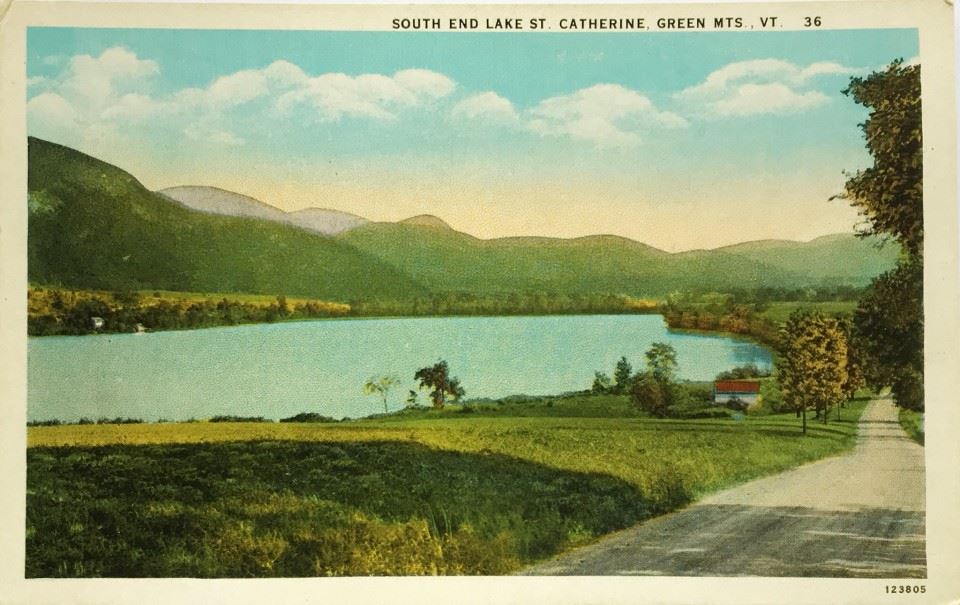The Lake St. Catherine Association (LSCA) and the Lake St. Catherine Conservation Fund (LSCCF) would like to inform the lake community about a joint board meeting meeting to discuss issues and opportunities, as well as a path forward, to address Eurasian Watermilfoil (EWM) and sediment levels in the Little Lake St. Catherine. These two problems in Little Lake are significant.
Our goal for this meeting is to reach clarity about the problems and to find the best solutions so we can quickly take action to remediate them.
Meeting Details
On Tuesday, August 25th at 6 PM, a virtual, joint meeting will take place between the LSCA, the LSCCF, limnologist Jennifer Jermalowicz-Jones from Restorative Lake Sciences in Michigan, and Misha Cetner, Laura Dlugolecki, Oliver Pierson, and Zapata Courage from the Vermont DEC. This panel discussion will be led by professional moderator Gary Kupferer.
The format for this meeting and discussion will be:
- Opening statements by the LSCA and LSCCF
- A 20 minute presentation by Jennifer Jermalowicz-Jones
- A 20 minute presentation by the Vermont DEC
- A 60 minute question and answer session between all panelists
- Closing statements by the LSCA and LSCCF
During the 60 minute Q&A, panelists and board members will take turns asking questions of each other. The first 20 minutes of the meeting will be dedicated to allowing the invited scientists to ask each other questions. The LSCA and the LSCCF will also be soliciting questions from the lake community that will be asked during the final 40 minutes of the Q&A.
Meeting Topic
There is a debate amongst the parties on the best course of action to reduce excess vegetation including EWM and organic sediments in Little Lake, and the efficacy of the tools proposed to achieve this. These tools include aeration with bioaugmentation (enzymes), herbicides, mechanical harvesting, diver assisted suction harvesting (DASH) and watershed management.
The LSCCF has invited limnologist Jennifer Jermalowicz-Jones from Restorative Lake Sciences who is a proponent of aeration with bioaugmentation (introducing enzymes to the lake) to discuss installations and the results of installing these systems in lakes.
The LSCA has asked the DEC to participate to discuss the findings in their 2019 paper entitled “Aeration As A Lake Management Tool And Its Use in Vermont” which concluded that the scientific literature does not support or recommend the use of aeration as a tool for managing muck or aquatic plants.
Jennifer Jermalowicz-Jones and the DEC representatives will each make a presentation, and then engage in a discussion about aeration and other lake management tools and topics.
We believe this exchange of ideas, scientific facts and real world experience shared by the parties in this meeting will advance our goal to get the right treatments in the Little Lake as quickly as possible for the betterment of the entire lake system. We will have the right leaders in the room representing the interests of the lake communities and noted experts in reversing the impact of invasive aquatic species and other lake encroachments.
How You Can Participate
This meeting will take place online via online meeting software on August 25th at 6 PM. The discussion will be recorded and then posted, in its entirety, to YouTube for the lake community to view at your convenience.
Although you will not be able to participate live in this discussion, we do want to hear from you so your questions can be answered during this discussion.
We have set up this online form for you to submit a question to be asked during the meeting. You can access that form by visiting this link: https://forms.gle/KX14jvzU2Vnidw1v8
Commitment of the LSCA & the LSCCF Boards
We are endeavoring to work together to help Little Lake. This meeting is a step forward towards that shared goal. Our hope is that this meeting will bring some clarity to the situation in Little Lake, and that it will set the stage for our two organizations to work together on solutions.
